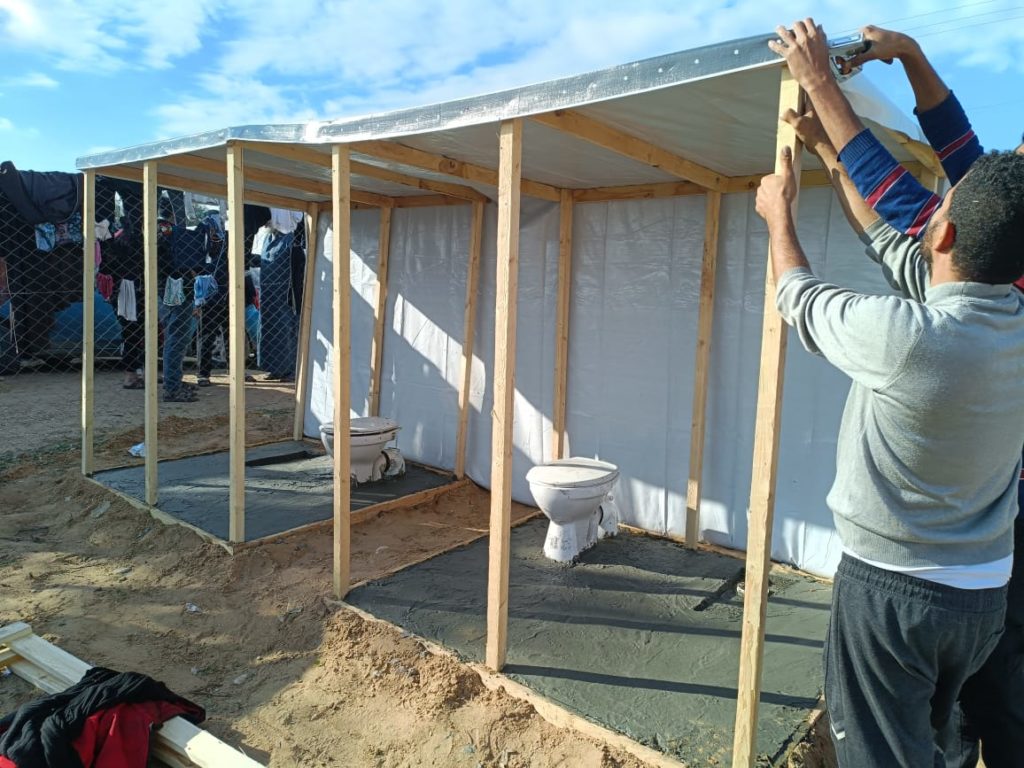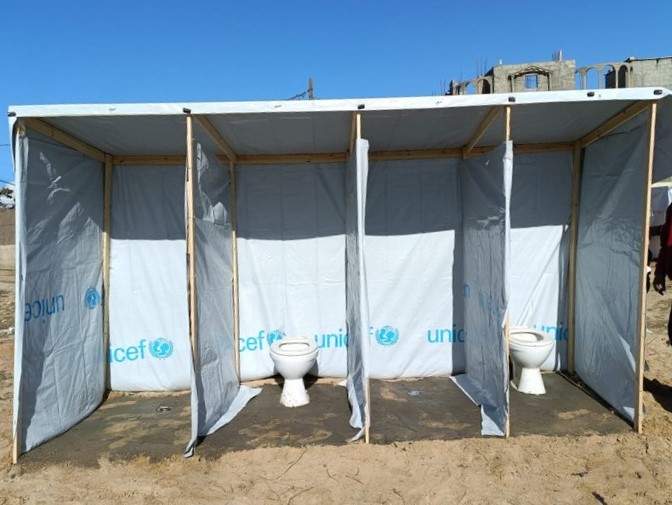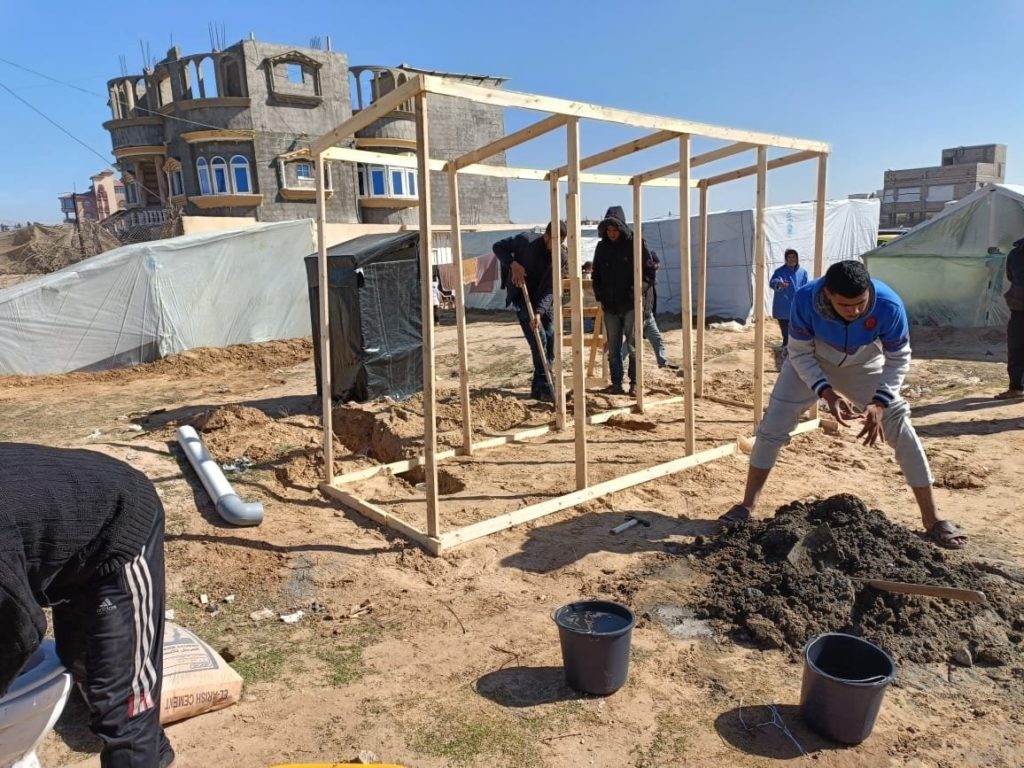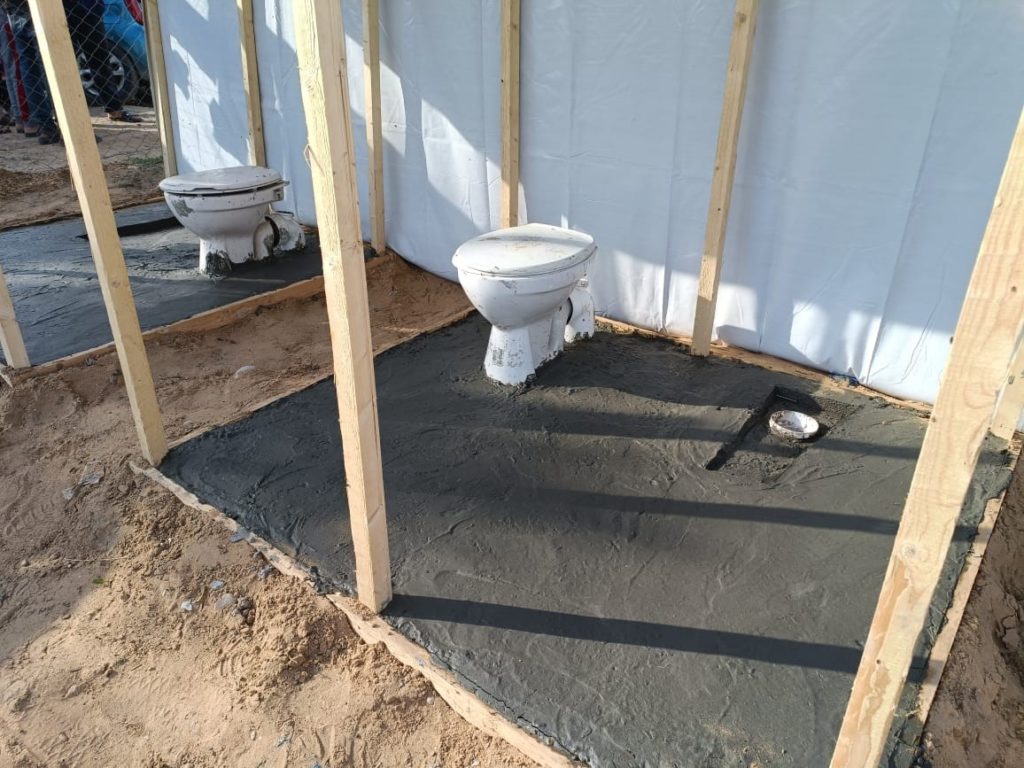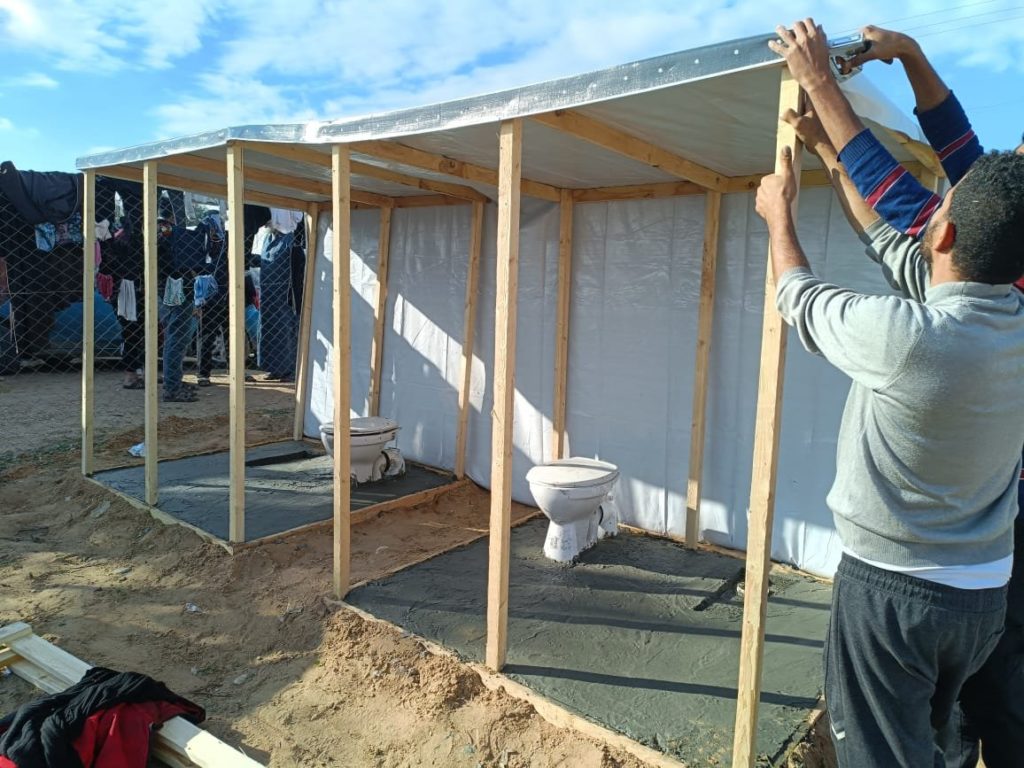SFP graduates project: Sanitary Needs for Displaced Persons in Gaza
Seba is a Palestinian woman, originally from Gaza, and Tom is an Israeli woman. They are both based in Germany. They met through our dialogue program for Palestinians and Israelis living in Europe; an encounter that not only changed both of their lives, but also sparked the Clean Shelter Project – Sanitary Needs in Camps for Displaced Persons in Gaza. In a joint online conversation, they share the story of the project, their collaboration, and the dialogue program.
How did the project start?
The dialogue program for Palestinians and Israelis who living in Europe started on October 8, only a day following Hamas’ attack on Israeli villages near Gaza, and one day prior to Israel’s military campaign of bombardment, killing, displacement, and utter destruction in Gaza; a war that has been relentlessly unfolding to this day. During the dialogue sessions, and in light of the unfolding catastrophe, Seba felt the urge to do something to help her people in Gaza. Tom recalls Seba had many great ideas, and that she herself just wanted to be of help to her peer. Seba says that she felt overwhelmed by the many needs arising in Gaza in the face of this absolute crisis, and that Tom helped her in focusing on one idea and making it happen. They say that the moment they joined together everything happened quickly, easily and naturally.
Why this project?
In a conversation Seba had with her mother, who is currently living in a makeshift Internally Displaced Persons (IDP) camp in Gaza, she realized that there’s a great need for, and shortage of, clean facilities in those camps – specifically a shortage of tents, mattresses and toilets. This shortage does not only pose a potential sanitary crisis, with a clear risk of diseases spreading, but it also negates and deprives people of their dignity. Seba and Tom then realized how acute this need is, and decided to move forward with trying to address it. They also chose to focus on this specific need because it’s a tangible and concrete cause to both carry out and rally people to donate towards and support.
How did you two connect?
At the beginning of the program, they didn’t know each other. Tom recalls a specific session that made them connect with one another. There was a tense discussion in the group surrounding the use of the word “terrorist”. Seba did not accept that another participant tried to create and hint at a sense of symmetry between the occupied and the occupier, and fiercely drew a red line around what she was willing to accept in the discourse. Tom not only supported Seba’s call to challenge the discourse, but also appreciated Seba for standing up for her principles so fearlessly. “I like that woman, I said to myself at that moment” says Tom. Ever since then, they have been connected. When they paired up to carry out the initiative, they realized that they are not only building a connection but also a sense of trust and commitment. “There’s a special power that comes from the connection between Palestinian and Israeli women; women who are feminists and intellectuals who work together. It’s like a superpower”, says Seba.
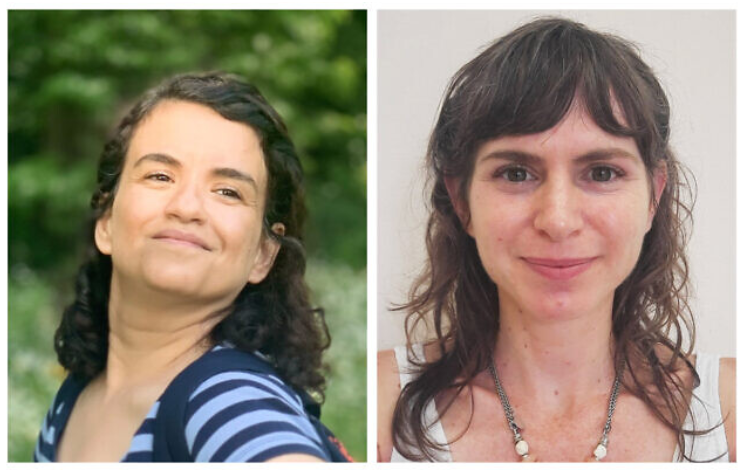
Seba Abu Daqa and Tom Kellner
What impact did the course have on you?
Both Seba and Tom share that they were skeptical about taking part in such a dialogue program, since they are both self-described people of action rather than people of words. But something about getting to hear what Israelis and Palestinian living outside the land think about the conflict intrigued them. The course was scheduled to start on October 8. Since many of our programs in the School for Peace were delayed by a few weeks due to the events of October 7, we were surprised that this group insisted on meeting as planned. And indeed, it wasn’t easy, says Seba. It even got to a point where she thought about quitting the program after a few sessions, as she felt like it was a “luxury” and a waste of time to just talk or even argue, when the war was raging in Gaza.
But they both went through a meaningful process. For Tom, who is a person of action, the discussions let her connect to Seba, and then led her to take part in a meaningful hands-on project. Seba shares how she felt that for the first time in her life she got to meet an Israeli who is not afraid to answer tough questions. Seba shares that this encounter changed her. She also says that other participants, both Palestinians and Israelis, had an impact on her, either by sharing different perspectives or by making her feel seen and understood – and in that sense, feel equal – by the end of the process.
Where does the project stand today?
Seba and Tom started the project and called for donations in December 2023. The authorities in Germany have a limit on the sum of donations one can receive without being registered as an organization. Seba and Tom assumed they would reach that limit within a year or so. To their surprise, the response was immense and they reached the limit by the end of January, and are now in the process of registering as an organization. As for today, they have built and provided dozens units of toilets, tents and mattresses to IDPs in Gaza. As new waves of refugees arrive in the south of Gaza everyday, the need for more resources steadily grows larger. To learn more and support, you can donate to the project, you can read about the project, and you can find an article about the project in The Times of Israel.
